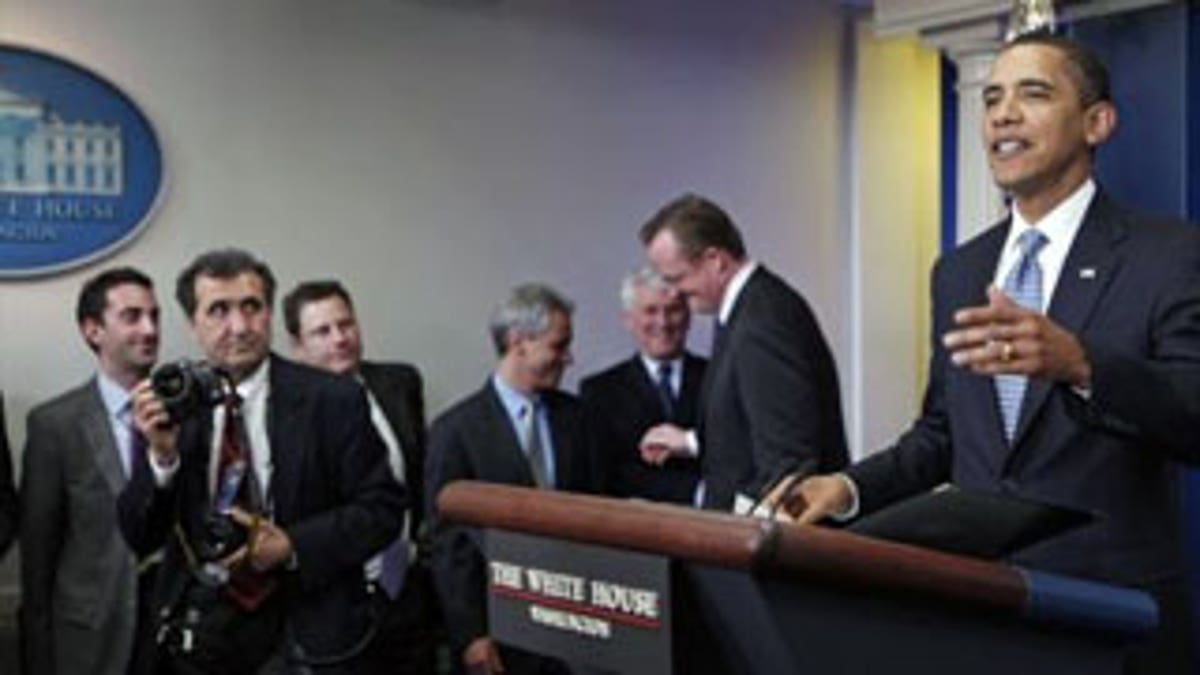
May 1: President Barack Obama made a surprise appearance at the daily press briefing today to address the retirement of Supreme Court Justice David Souter and criteria for a replacement, with senior advisers behind him. (AP)
President Obama apparently has no fear of the cameras -- he's spent more time speaking in front of them than George W. Bush and Bill Clinton did in their first year in office -- but lately, he's been avoiding day-to-day interaction with reporters.
That interaction typically comes at brief question-and-answer encounters with White House correspondents gathered for sessions with Cabinet members, other U.S. officials or foreign dignitaries. Clinton took reporters questions in 252 such sessions and Bush in 147, according to Martha Joynt Kumar, a political science professor at Towson University who tracks presidential communication from the White House.
Obama's total: Just 47 in his first year.
"He's taking few questions from individual reporters in a setting where he has to respond to the issues that reporters want to talk about," Kumar said. "And so instead, he can focus on interviews where he can talk about subjects he wants to talk about."
The White House doesn't deny the lower number of brief encounters with the press pool but argues that it has agreed to many more one-on-one interviews.
"We have done countless number of interviews," White House spokesman Robert Gibbs said. "I think more interviews in the first year than any president certainly in recent memory."
In fact, Obama has granted 161 interviews, compared to 50 for Bush and 53 for Clinton.
But Kumar said Obama's interaction with White House beat reporters has tailed off since July, when the president held his last formal White House news conference. In the last five months, Obama's had only 16 brief Q&A sessions with beat reporters -- fewer than four a month.
"President Obama has focused on interviews in a way that his predecessors did not," Kumar said. "And that's because as a professor, as a lawyer, he likes to put in all of the 'buts' and 'wherefores' and talk about something in-depth."
Deputy White House spokesman Josh Earnest said Obama likes interviews because "the conversation gives him an opportunity to communicate and explain and engage on or two topics."
The brief Q&A sessions, Earnest said, often seek to drive Obama off message or introduce topics outside of where the president wants to take his message.
That, of course, is precisely what White House reporters want to do.
"Reporters view themselves as surrogates for the public," Kumar said. "Their job is to be there to ask the questions that the public would like to have answered."
The president took questions recently from House Republicans and Senate Democrats, the former far more combative than the latter. He's taken questions online too, but that doesn't count, because the White House screens them. The next spontaneous news conference? The White House says don't expect one any time soon.












































